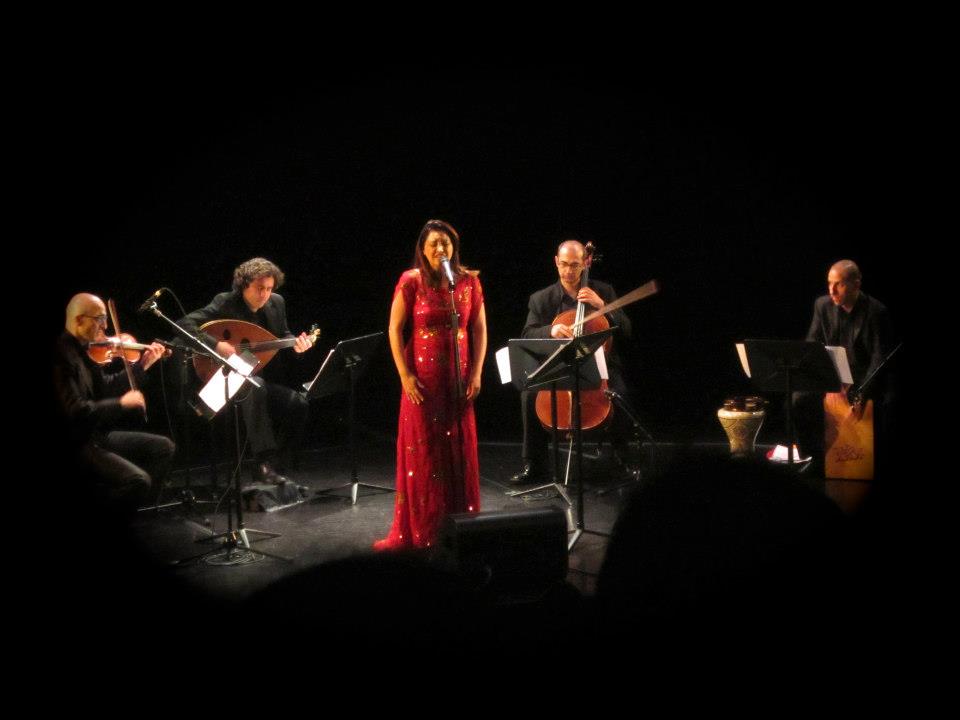Some of the most interesting cultural programming in New York is presented by the French Institute Alliance Française, and this month is no exception. WORLD NOMADS 2013: TUNISIA is featuring dance, music, the visual arts, and film from the former French colony, some of it addressing the politics of the Arab spring and issues of sex and gender. The opening concert, attended by the country’s ambassadors to the U.N. and the U.S., was comfortably non-controversial, and had a beautiful shape, as the singer (to my ear) acclimatized herself to an unfamiliar and perhaps less than ideal hall.
Sonia M’Barek was hitherto not known to me, and I was struck by the pan-Mediterranean flavor of the selections. To what extent there is a family relationship between Arabic, Near Eastern, and even Indian forms, with the flamenco and fado of Iberia is a question best asked of a musicologist; but it is there to the ear and makes historical and geographic sense. M’Barek’s Andalusian influences are apparent in songs such as “Layali Ishbilya” (“Nights of Seville”) and in the direct tribute she pays to Federico García Lorca. There is great richness in her voice and a strength to her presence that brings to mind notions of indomitability and ancestral pride, as though a given culture is something that survives even as it spreads and evolves in union with other forms and sensibilities.
It is not surprising that the event was co-sponsored by the World Music Institute, as what one heard was exemplary of the very idea of such a music. The Al-Bustan Resident Takht Ensemble, which accompanied M’Barek along with some instrumental interludes, furthered that impression with a mix of Western and Near Eastern instruments. The performance was instructive and genuinely moving, and brought an audience to which the represented culture had a clear personal importance, to its feet, twice.
For information about programs and events at FIAF, click here.
